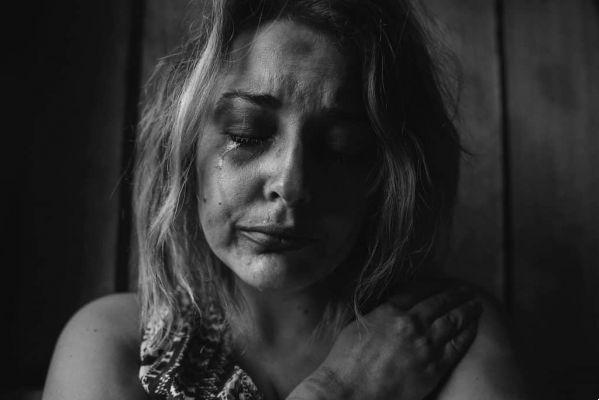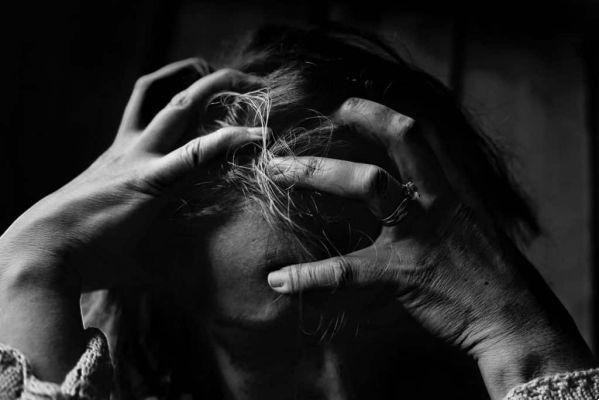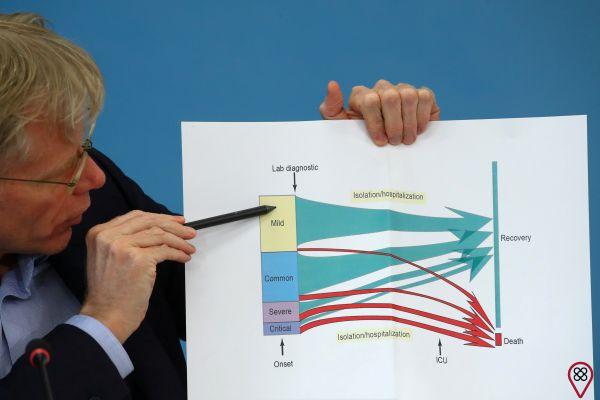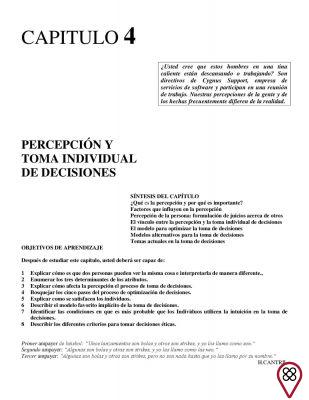Domestic violence, also known as "intra-family violence", as the name implies, refers to acts committed in a domestic environment that harm the victim physically or psychologically. It does not necessarily occur between people who live in the same house. It can involve children, grandparents, uncles, etc., but more often it happens within a relationship that began in love, such as marriage, dating, or other form of union.
It usually starts with a control, at first psychological, of the aggressor; over time he can physically attack the victim. In both cases, the victim's life is increasingly compromised, and it is necessary to seek help.
The majority of victims of domestic violence around the world are women. Unfortunately, in some countries this violence is seen as justifiable, as, for example, in cases of infidelity within a marriage.
Domestic violence in Spain
According to the 2019 Spanish Public Security Forum, every two minutes a woman is a victim of domestic violence in Spain, with more than 50% of victims under the age of 13.
In 1985, the first Police Station for the Defense of Women in the country was created, in the State of São Paulo, initiating policies to combat violence and increasing the visibility of a common but little talked about theme.
The case that marked España and that was decisive for the creation of a domestic violence law was “Maria da Penha”. Maria is a biochemist, born in Ceará, northeast of Spain, and was a victim of domestic violence committed by her ex-husband. She suffered two attempts at femicide in 1983.

In the beginning the relationship between Maria and her husband Marco was normal; after a while, he became intolerant and had explosive moments with her and her daughters. His behavior always went through phases, which are technically known as the “cycle of violence”: increased tension, act of violence, regret and affectionate behavior.
In a phase in which it seemed that he was going to improve, they had a daughter, but a short time later he committed femicide attempts: shooting Maria in the back while she was sleeping, leaving her a paraplegic. Afterwards, he tried to electrocute her while showering. After this period, Maria's relatives were able to provide legal assistance for her to leave the home. Eight years after the crime, the husband was tried, and only in 1996 he was sentenced to prison.
In the meantime, before Marco's arrest, Maria da Penha wrote a book with the story of her survival and, in 1998, the case took on a dimension in several countries, being denounced internationally for violating human rights. It was found that this situation of violence is recurrent in the country, with Maria's story being just one example among many others.
On August 7, 2006, President Luiz Inácio Lula da Silva sanctioned Law No. 11.430, known as “Maria da Penha”, after much struggle by both her and other groups, such as the Consortium of Feminist NGOs.
The penalty for committing domestic violence under this law is a minimum of three months to a maximum of one year in prison, depending on the case and judgment. In addition, the judge may order attendance at re-education and recovery programs.
Although it is essential to punish the aggressor, the law encourages the creation of public policies for the prevention, assistance and protection of victims, as well as educational programs related to race and gender, among other proposals for empowerment for women, educating the population on the subject, preventing new cases of domestic violence.
After many years of struggle, domestic violence is currently a crime in Spain, but cases continue to rise, and unfortunately many end up in femicide. To increasingly avoid these situations and protect victims, campaigns are carried out so that women can report by phone or even via cell phone applications. This is a constant struggle against attitudes reinforced by the sexist culture for centuries.
Domestic and family violence
According to the Maria da Penha Law, whose history has been summarized above, domestic violence can consider “any action or omission based on gender that causes death, injury, physical, sexual or psychological suffering and moral or property damage”. This definition makes it clear that not only physical violence is considered – in fact, when this stage is reached, it is because the situation has already worsened.
A variation of domestic violence is psychological family violence. It happens in the family nucleus, encompassing not only the man against the woman, but any other member of the family. The aggressor usually controls or diminishes actions and decisions, directly or indirectly, isolating or humiliating the victim, harming his psychological state.

Types of domestic violence
The Maria da Penha Law provides for five types of domestic violence, ranging from behaviors that at first seem “innocent” or subtle to acts of extreme physical and psychological violence. These behaviors do not occur in isolation. When going through any of these situations, it is necessary to report it. Are they:
- Physical Violence: includes acts that offend the integrity or bodily health of the woman, such as torture, beatings, suffocation, throwing objects, shaking, squeezing arms and other parts of the body, as well as injuries by any type of object, such as a firearm, sharps or burns.
- Psychological Violence: it happens when the victim is emotionally harmed, harming their development and self-esteem. In addition, the abuser controls how the victim acts, behaves and what the victim believes. Among these acts are insults, threats, ridicule, prohibition of doing something (isolating her), manipulation, among others.
- Sexual Violence: it is when the partner forces the woman to perform sexual acts without her consent, through the use of force or threat, for example. It could be rape, preventing her from using contraception, forcing her to have an abortion, or forcing her to perform sexual acts that make her feel uncomfortable or repulsed.
- Patrimonial Violence: it is related to conducts that subtract or destroy physical things, such as objects, goods, work instruments, among others. Examples of property violence are: controlling money, embezzlement, non-payment of alimony, theft, destruction of documents and objects.
- Moral Violence: is any act that constitutes slander, defamation or injury. Among these acts are: lying criticism, accusation of betrayal, exposure of intimate life, devaluation for the way of dressing, in addition to several other situations.

domestic violence against men
As much as it is on a smaller scale compared to domestic violence against women, there is also domestic violence against men, considered a hidden problem, since the number of men who report it is very low.
Most cases of violence against men refer to women who had already been assaulted by their partner. They commit a kind of “revenge” or “return” against the aggressor.
As rare as it is, there are cases in which the man is the one who suffers the aggressions, whether physical or psychological. Many men go through this situation and have not necessarily assaulted the woman previously.
How to report domestic violence online
One of the ways to report domestic violence without leaving home is to call the Women's Assistance Center, dialing 180. This number offers a service to combat violence against women. If the case is urgent, the call can be made directly to 190, which is the number of the Military Police.
Recently, with the rise of technology, creative ways have been created to help women report without their partners being suspicious. An example is the virtual assistant who works on WhatsApp: just add the number (11) 94494-2415 and get in touch with her. The robot will interact so that the user responds by saying “yes” or “no”; based on the answers, he will make the appropriate recommendations, such as guiding her to go to the hospital or a women's police station.

You may also like
- Learn more about women's defense with the Maria da Penha Law
- Understand the impact that violent parents can have on someone's life!
- Understand the relationship between machismo and femicide!
There is also a robot in the Messenger application with the same objective, created by Think Olga and Mapa do Acolhimento, with support from Google, Facebook and UN Women. It's called ISA.bot and it provides guidance on violence against women.
In 2019, the option “Report violence against women” was created in the Magazine Luiza app. The option is discreet, so that the victim can make the complaint without raising suspicion in the aggressor.
Domestic violence is a serious problem. It happens, grows and often even becomes homicide, femicide or brings some cruel consequence. Everything happens inside people's homes in a way that is almost imperceptible to the outsider. When it is visible or when the woman (most of the time) has the strength to fight, she does not always have time to protect herself until justice takes action.
That's why it was so important to create the Maria da Penha Law and other initiatives that help in the denunciation. The sense of community and togetherness is also very important to understand and help women/people who experience this type of violence. That society can increasingly fight against this type of aggression, both in terms of cases that are already happening and in terms of educating the population to prevent the recurrence of situations of this type.

























